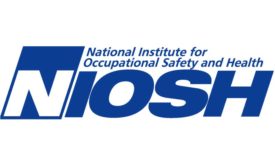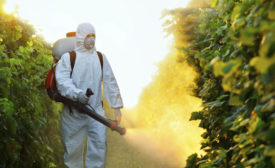News
From NIOSH Research Rounds:
Study to evaluate physical effects of personal protective equipment
January 11, 2016
Cancer death rate continues steady drop
More than 1.7 million cancer deaths averted between 1991 and 2012
January 10, 2016
U.S. mining deaths dropped to new lows in 2015
Work-related accidents claimed 28 miners’ lives
January 8, 2016
EPA releases info on insecticides that may be harmful to bees
First-of-its-kind assessment delivers on President Obama’s National Pollinator Strategy
January 8, 2016
Become a Leader in Safety Culture
Build your knowledge with ISHN, covering key safety, health and industrial hygiene news, products, and trends.
JOIN TODAYCopyright ©2024. All Rights Reserved BNP Media.
Design, CMS, Hosting & Web Development :: ePublishing








